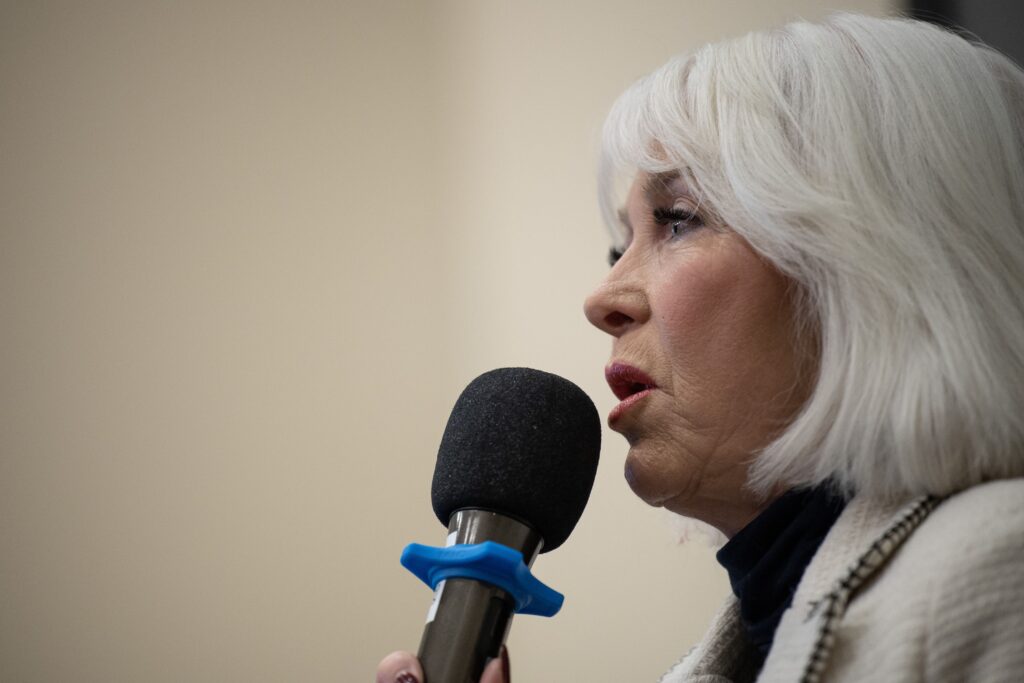Denver magistrate may resolve dispute between parents over whether to vaccinate child against COVID-19, appeals court says

Colorado’s second-highest court last week clarified that trial judges need not find a child is endangered before they break an impasse between two parents who cannot agree about which course of action is best.
A three-judge panel for the Court of Appeals agreed a Denver magistrate appropriately sided with a father who wanted his child vaccinated against COVID-19 over the mother’s objection. In circumstances where parents have joint decision-making responsibilities and reach a stalemate on an issue, the panel noted judges are empowered to cast “tie-breaking” votes based on the best interest of the child.
If judges could only act when a child is endangered, wrote Judge Ted C. Tow III, “the inability to break the impasse would effectively grant veto power to a joint decision-maker who prefers the status quo.”
Carrie E. Kelly, a family law attorney, said judicial tie-breaking in parenting decisions is not common, in her experience. When it does happen, the dispute tends to be important – which school a child will attend or which course of medical treatment a child will receive, for instance.
“Sometimes a decision needs to be made, but the difference between the two potential decisions isn’t so great that one of them is an endangerment,” she said. “Going to court is never anyone’s first choice. It’s slow and expensive. When these issues come before the court, you know it’s a last resort and a decision just needs to be made or the conflict will continue indefinitely.”
Case: In re E.E.L-T.
Decided: February 8, 2024
Jurisdiction: Denver
Ruling: 3-0
Judges: Ted C. Tow III (author)
Lino S. Lipinsky de Orlov
Matthew D. Grove
Background: As Supreme Court considers role of judges in parenting decisions, appeals court jumps into fray
In the case before the Court of Appeals, Robert Sean Larkin wanted his child in late 2021 to be vaccinated against COVID-19. The mother, Lydia Dawn Toupin, did not. After hearing testimony, Magistrate Angela Boykins ruled that the parents would continue to have joint decision-making on all major issues, but she would permit the child to receive the COVID-19 vaccine.
“The Court finds that the minor child is endangered and potentially endangering others by not having in place a party who can make decisions about whether the minor child can receive treatment,” Boykins wrote. “This issue will continue … as different strains of covid are emerging and booster vaccines are becoming available.”
Toupin appealed the order, but District Court Judge Christine C. Antoun upheld the decision. The child proceeded to receive his COVID-19 shot.
Toupin again appealed. By that time, the Court of Appeals had issued a precedent-setting decision stating trial judges do, in fact, have the power to break impasses between divorced parents who cannot agree. The opinion did not, however, mention the role endangerment should play in those tie-breaking decisions.
Tow, who authored that appellate ruling on judicial tie-breaking, forcefully pushed back during oral arguments on Toupin’s contention that Boykins altered the joint decision-making responsibilities when she sided with the child’s father.
“Inaction or action picks one parent over the other,” Tow said. “There has to be some way to break the impasse in the event of, or if no, endangerment is found. Someone has to make the decision. Your position would essentially be that non-vaccination is the law unless there’s endangerment. I don’t see any legal authority for that.”

Attorney Todd Narum, representing Toupin, said a decision to vaccinate is “hypothetical” because a child does not currently have an infection requiring treatment at the time the decision needs to be made.
“In joint decision-making, if one parent wants the child to play football and the other parent doesn’t, the court can’t break that impasse?” responded Tow.
Ultimately, the panel agreed Boykins acted within her authority by breaking the tie in favor of vaccination. In the Feb. 8 opinion, Tow noted there was no challenge to Boykins’ finding that vaccination was in the child’s best interest.
Hannah Clark, the attorney for Larkin, said she did not believe the ruling would have a significant impact given the established precedent that judges have tie-breaking authority. However, it clarified that parents preferring the status quo could not win by default in the absence of endangerment.
“Sometimes the threat of litigation makes a parent cave to the other, and sometimes parents have other tie-breaking methods in place, such as an arbiter,” she said.
Toupin’s attorney did not respond to an email seeking comment.
The case is In re E.E.L-T.














